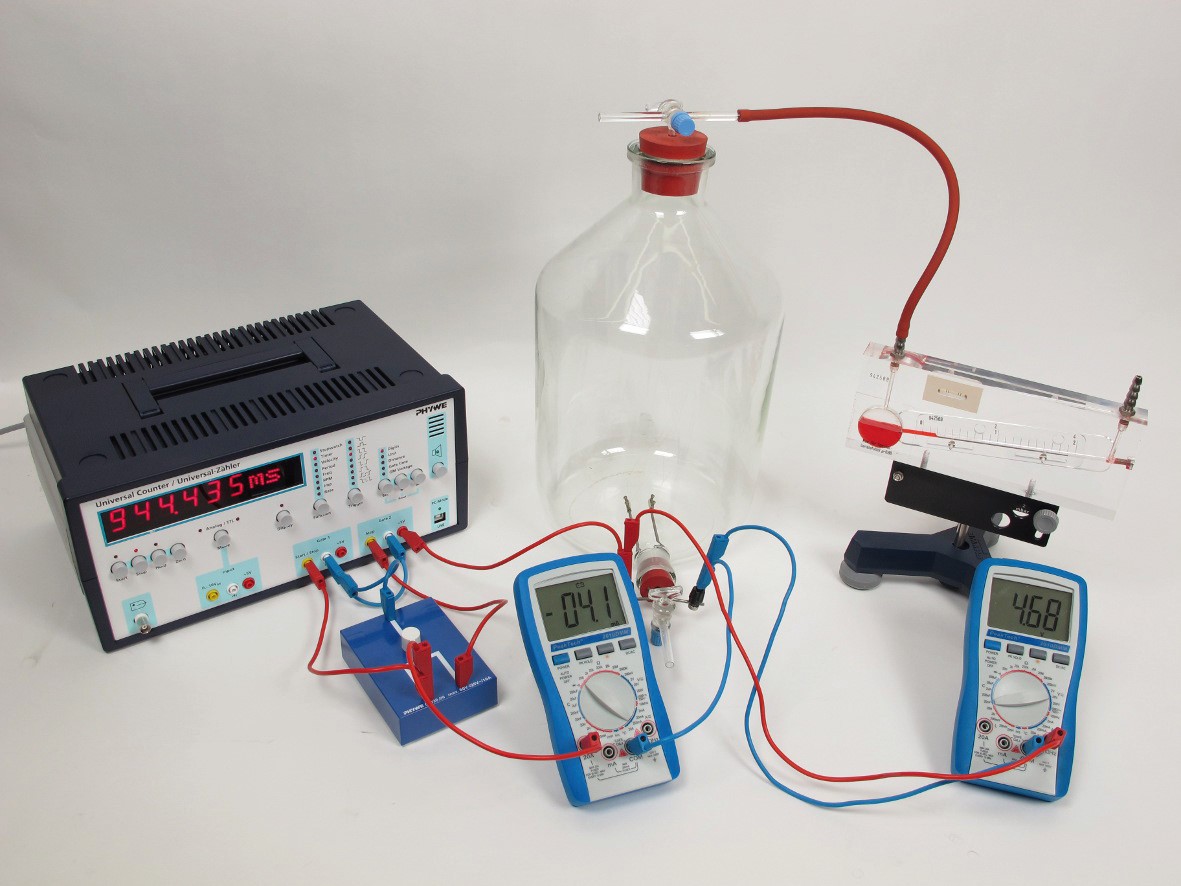Canada’s Instrumentation Leader Since 1946.


Heat is added to a gas in a glass vessel by an electric heater which is switched on briefly. The temperature increase results in a pressure increase, which is measured with a manometer. Under isobaric conditions a temperature increase results in a volume dilatation, which can be read from a gas syringe. The molar heat capacities Cv and Cp are calculated from the pressure or volume change.
Principle
Heat is added to a gas in a glass vessel by an electric heater which is switched on briefly. The temperature increase results in a pressure increase, which is measured with a manometer. Under isobaric conditions a temperature increase results in a volume dilatation, which can be read from a gas syringe. The molar heat capacities Cv and Cp are calculated from the pressure or volume change.
Benefits
Tasks
Determine the molar heat capacities of air at constant volume Cv and at constant pressure Cp.
Learning objectives

Copyright - 2026 - Hoskin Scientific